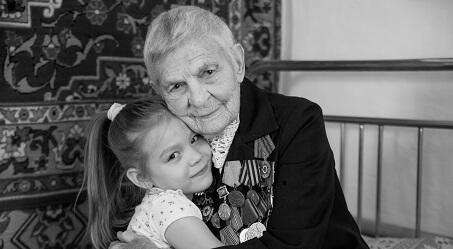Our North Carolina Long-Term Care Planning Lawyers Help Clients Prepare for the Challenges of Aging
 Do you have a plan in place to ensure that you will be taken care of for the rest of your life—even in the worst-case scenario? Our office regularly sees clients who have waited too long to begin planning and have already burned through a significant portion of their personal assets paying for in-home, assisted living, or nursing home care.
Do you have a plan in place to ensure that you will be taken care of for the rest of your life—even in the worst-case scenario? Our office regularly sees clients who have waited too long to begin planning and have already burned through a significant portion of their personal assets paying for in-home, assisted living, or nursing home care.
Don't take necessary chances with your future. Contact the experienced long-term care planning lawyers at Carolina Family Estate Planning today.
Planning Brings Peace of Mind
At Carolina Family Estate Planning, we help clients develop well-rounded long-term care plans that include legal, financial, and health care tools to:
- Help you retain more of your assets
- Maintain your dignity as you age
- Help you have access to quality care
- Make things easier for your family.
You may be thinking, “I have Medicare, so I don’t have to worry about long-term care, right?” Wrong. Medicare does not pay for chronic care and long-term care. Medicare only pays for acute nursing home care after a hospital stay of at least 3 days such as rehabilitation after hip surgery due to a fall. Long-term care is needing help with the “activities of daily living” such as getting out of a bed or chair, bathing, dressing, eating, and incontinence. Long-term care is often needed due to significant cognitive impairment due to Alzheimer’s, dementia, stroke, or other diseases.
Without advanced planning, asset protection can be difficult.
In crisis situations, assets are often rapidly being depleted paying for care and there may be limited planning options remaining. The best time to plan is when you are nearing or early in retirement and are in good health. If it’s too late for that and there has already been a diagnosis or a noticeable decline in either physical or cognitive abilities, then it’s critical to start on proactive planning as soon as possible.
We Can Guide You Through Creating a Long-Term Care Plan
Unfortunately, many traditional elder law attorneys, estate planning attorneys, and financial advisors are failing their clients when it comes to addressing these looming long-term care issues. Our office is dedicated to helping people explore a combination of legal, financial, and health care options to help people find realistic, workable solutions to develop a long-term care plan.
The available planning options will vary significantly from one individual to another depending upon a variety of factors such as:
- Your current age and health
- Your long-term care preferences
- Your current income and assets
- Whether you have other dependent family members such as a spouse or dependent children
- The degree of importance of leaving an inheritance for other family members
- The amount of overall protection that you wish to have.
In addition to being knowledgeable about legal planning issues, our team is also well-versed on various financial and insurance options for long-term care planning. We work with vetted professionals to explore all potential options to create a comprehensive long-term care plan that explores legal, financial, and insurance options to build the best plan for your particular goals and circumstances.
For some clients, this still might include pre-planning for future eligibility for government benefits such as Medicaid, Special Assistance, or Veterans Aid & Attendance benefits.
For others, it might be exploring the use of other tools such as different forms of long-term care insurance, life insurance, annuities, reverse mortgages, or other tools that can be used for long-term care planning purposes.
For many, a well-designed long-term care plan will include a combination of long-term care planning strategies to maximize your protection.
Founding attorney and planning strategist, Jackie Bedard, is not only an estate planning and elder law attorney, but she is insurance-licensed specifically so she can help clients address these important issues and help people understand how to combine these various tools for maximum protection.
As an attorney, Jackie owes a fiduciary duty to act in her client’s best interests and recommend the tools that she feels will best help them accomplish their estate and long-term care planning goals. She firmly believes that there is not a “one-size-fits-all” solution when it comes to long-term care planning. Instead, the best planning often involves building the right combination of legal and financial tools. When needed, we also work with other financial professionals that we have vetted, including verifying that they also hold the appropriate credentials that require a fiduciary standard to their clients.
Start Your Planning Journey Today
Having assisted many Wake County clients with long-term care planning, our team at Carolina Family Estate Planning understands that developing a long-term care plan is about not just protecting your own independence and dignity, but also protecting those you love from the physical, emotional, and financial toll that caring for a loved one can take.
We’ve helped many clients take an interdisciplinary approach to their long-term care planning by exploring both legal and financial options. Usually, a well-rounded long-term care plan will involve a combination of legal, health care, and financial tools to meet your goals and maximize your protection. To get started, register for an upcoming seminar to learn more or call our office at 919-443-3035.






